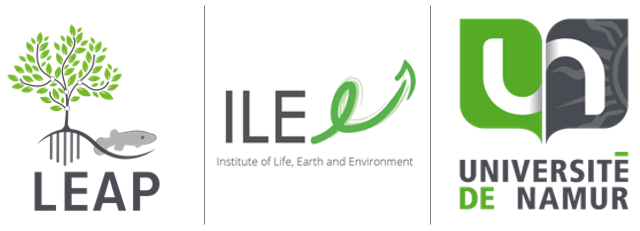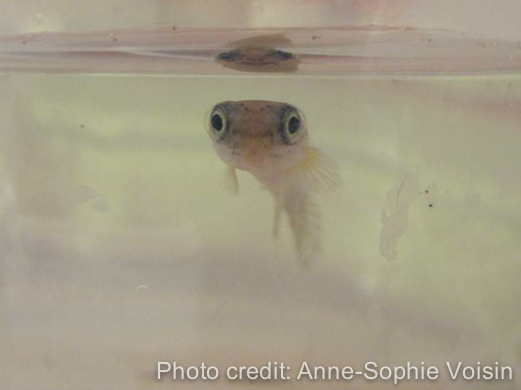One post-doctoral position is available starting next summer (between July and September 2014) for a period of 2 years. Postdoctoral research will be primarily conducted at the University of Namur (Belgium), Laboratory of Evolutionary and Adaptive Physiology (Prof. F. Silvestre).
The goal of the present project is to investigate how epigenetic information allows a single genotype to adopt multiple epigenotypes conferring different phenotypes in a vertebrate species. The researcher will be the driving force in developing a workflow in ecological epigenetics. He will be in charge of managing a workpackage of a new funded project by the FNRS (Fund for Scientific Research) aiming at investigating the role of DNA methylation in the mangrove Rivulus, Kryptolebias marmoratus. This unique fish species is the only vertebrate that is known to be hermaphrodite and to reproduce by self-fertilization. Selfing has resulted in populations composed of a diversity of distinct homozygous strains with a variety of identifiable phenotypes. This project aims to characterize genome scale methylation levels of rivulus during early embryogenesis till the mid-blastula stage. We will compare the methylome in sperm, oocyte and early embryos and identify differentially methylated regions (DMRs). Moreover, changes in methylation level will be investigated during ontogenesis in larvae exposed to environmental stressors such as endocrine disrupting chemicals, and possibly associated to changes at the cellular (proteome) or organismal phenotype levels. Different approaches will be possibly developed and interconnected : global DNA methylation, CpG specific methylation using bisulfite treatment and pyrosequencing, DNA methylation polymorphism using MS-AFLP, genome-wide DNA methylation using RRBS libraries and bisulfite-sequencing,… Moreover, linking the epigenome to the phenotype will permit to explore other techniques such as proteomics, transcriptomics, behavioral or physiological analysis.
Candidates should have a background in epigenetics, possibly on non-model organisms in an ecological/evolutionary context, or have a strong interest in developing these skills. On the date of the hiring, candidates must hold, since at the most 6 years, a doctoral academic degree obtained after the defence of a thesis. They must have had their former affiliations outside of Belgium and not have been resident in Belgium for more than 24 months during the last 3 years (on the date of the hiring). Final selection will be done on the basis of the strength of research and development experience, publication record, and statement of interest.
We offer a stimulating research environment in a lively University in Namur, the capital of the Walloon Region (near Brussels) in a research team with several partners closely involved in this project (in California, Alabama and New Zealand). Possibilities are given to visit our partners during the duration of the project. Our team is internationally recognized in the field of ecotoxicoproteomics and aims to develop an integrated approach based on ecological epigenetics and phenotypic analysis. Lab facilities include, among other things, a pyrosequencer PyroMark Q24, a 4-capillary electrophoresis instrument, a proteomic platform with a Bruker Daltonics maXis UHR-TOF mass spectrometer. More informations can be found on our website : http://www.sciences-unamur.be/bio/system-ecotox.
Deadline for application is June 1st 2014
Informations request and applications should be sent to :
Pr. Frédéric Silvestre : frederic.silvestre@unamur.be

